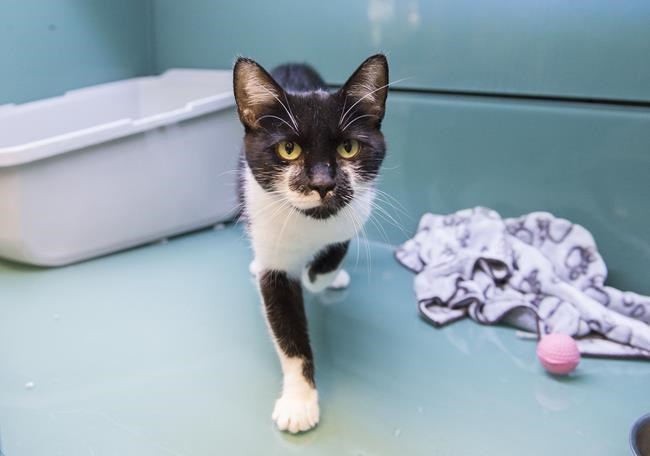MONTREAL — A wide-ranging update to Quebec's pet welfare rules took effect across the province on Saturday, banning four cosmetic surgeries and setting new standards for the care of several mammal species.
Though Quebec's order of veterinarians had previously discouraged vocal cord removal, ear cropping, tail trimming and cat declawing, the new regulation officially prohibits the procedures for aesthetic purposes.
For Alexandra Yaksich, the measure represents the culmination of years of advocacy. The contract veterinary nurse authored a 2022 petition that garnered more than 21,600 signatures and prompted the province to say it was looking into creating the new regulation.
"It feels amazing," Yaksich said in a phone interview Saturday. "When I think about the scale and the magnitude of this, I mean, we're talking about millions of animals who will never have to endure unnecessary suffering."
The regulation formalizes a widespread rejection of the practices among professionals, said Gaston Rioux, president of the Ordre des médecins vétérinaires du Québec.
"This movement is not unique to Quebec," he said in an interview. "Worldwide, this is the type of surgery that is banned and discouraged."
Ontario is now the only province in Canada without a ban on cat declawing.
Rioux and his predecessor Caroline Kilsdonk said the four non-essential procedures unduly expose animals to risks associated with surgery and can lead to behavioural issues.
Vocal cord removal to suppress dog barking, for example, "is not considered very humane because if a dog is barking excessively, it probably has an anxiety or boredom problem," Kilsdonk explained.
"We only deal with the symptom, not the cause of the problem," she said.
And nearly one-third of cats who have undergone declawing — the equivalent of removing the human fingertip — exhibit behaviour problems or aggressiveness, Giroux said.
The Quebec regulation still allows veterinarians to recommend the surgeries for medical therapeutic purposes, and it makes an exception for the ear cropping of stray cats in authorized capture, sterilize and release programs.
Among the regulation's other provisions are bans on euthanasia by inhalation, leashing an animal without a collar, mating animals whose sizes are incompatible and feeding meat to pet pigs.
Though Yaksich applauds the new rules, she said Quebec needs to do more to crack down on irresponsible animal breeders and streamline the process for reporting them to authorities. She also hopes the Quebec regulation will put pressure on Ontario to introduce new pet welfare measures, too.
As for her own future, Yaksich said her experience advocating for animals has inspired her to apply to law school.
"I see how much room there is to improve things," she said. "I hope that I could really add something and help more animals through legislation."
This report by The Canadian Press was first published Feb. 10, 2024.
Samira Ait Kaci Ali and Thomas MacDonald, The Canadian Press



